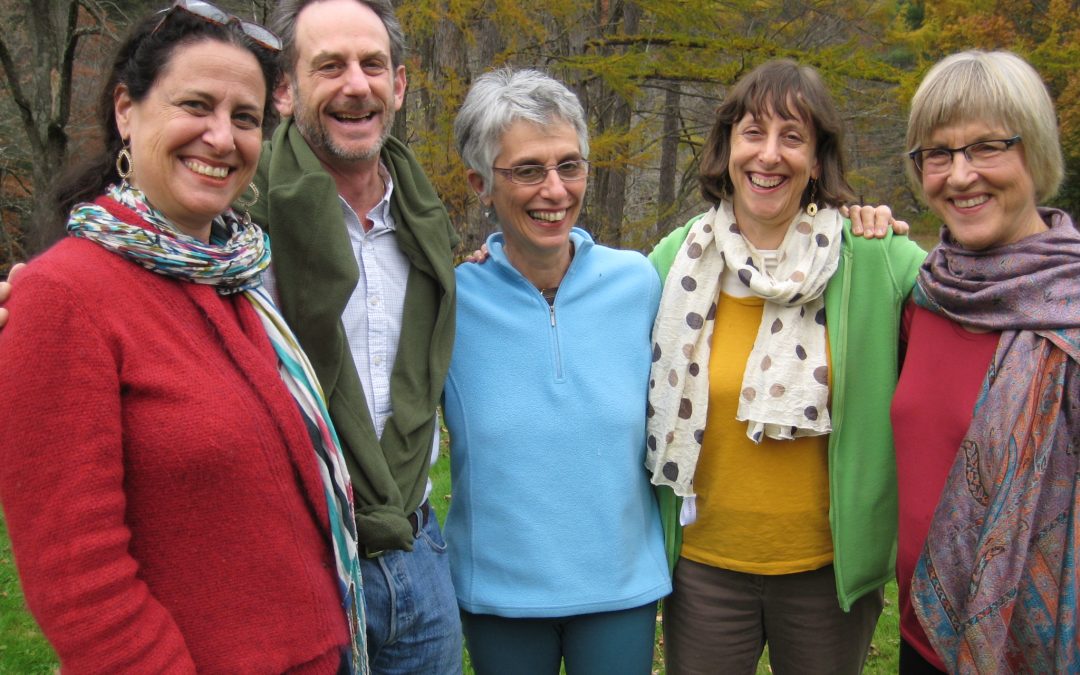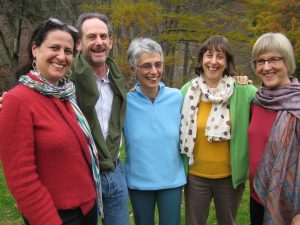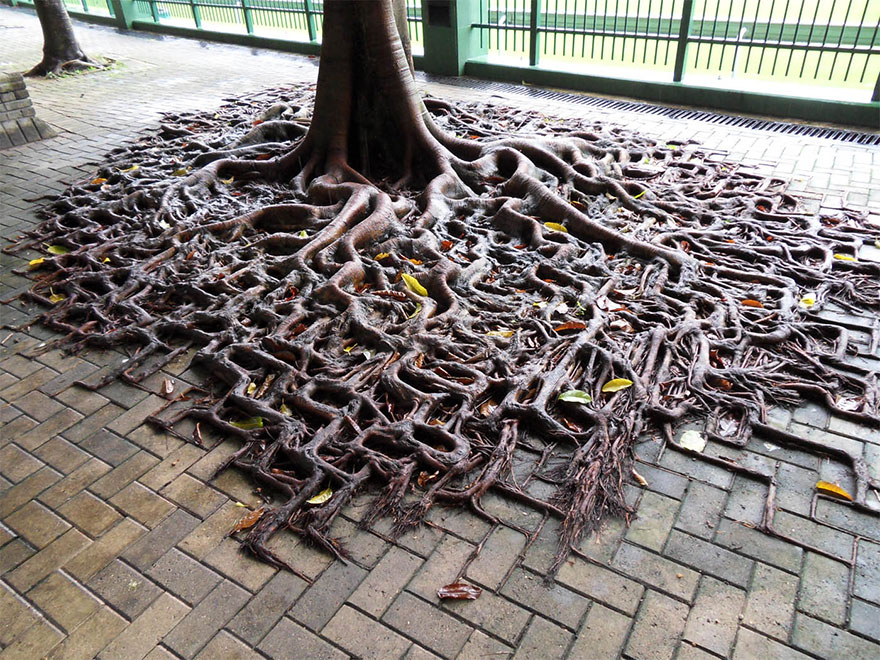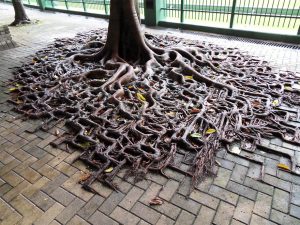
Feb 4, 2019 | by Rabbi Lisa Goldstein, Former Executive Director, Institute for Jewish Spirituality
 This month begins IJS’s 20th anniversary year! I was not personally present at the very beginning in 1999 when Rachel Cowan (z”l) and Nancy Flam brought together an extraordinary group of spiritual teachers and seekers in a process of sharing and learning that became the Institute for Jewish Spirituality. So much has changed and evolved since then.
This month begins IJS’s 20th anniversary year! I was not personally present at the very beginning in 1999 when Rachel Cowan (z”l) and Nancy Flam brought together an extraordinary group of spiritual teachers and seekers in a process of sharing and learning that became the Institute for Jewish Spirituality. So much has changed and evolved since then.
But one thing that has not changed has been the core values that undergird our work. Like all values, they are aspirational. Like all intentions, we fall short occasionally and recommit ourselves to them anew. As we take stock of the last 20 years and begin the process of reflection and rededication towards the next 20, I wanted to share these powerful values with you in hopes that they inspire you as much as they inspire me.
Institute for Jewish Spirituality: Our Guiding Principles
Shiviti Adonai lenegdi tamid: I strive to cultivate an awareness of God in every moment.
We seek a spiritual practice that wakes us to God’s reality in all aspects of our lives. The whole earth is full of God’s glory!
Tzelem Elohim: The Divine Image
We affirm and strive to reflect the divine and infinite potential in each human being.
Kehilla Kedosha: Holy Community
Creating and maintaining a safe, intentional community allows for deep listening to ourselves and to others, and opens us for healing, connection and insight.
Im eyn ani li mi li?: If I am not for myself, who will be for me?
Jewish leaders best serve and inspire their communities when they cultivate and refine their own spiritual lives–you can’t give what you don’t have.
La aleycha hamlachah ligmor: You do not have to finish the work, but neither are you free to desist from it
Spiritual growth is a life-long process that requires ongoing commitment, practice and guidance.
Tikkun HaNefesh and Tikkun Olam
We understand that our work to cultivate awareness leads inexorably to acts of kindness and justice.
Ki tavo chochmah b’libeycha, v’da’at l’nafsehcha yinam: For wisdom will enter your mind and knowledge will delight you
While we inherit a unique religious tradition, we are open to, benefit from, and integrate wisdom from other traditions.
Redeeming Sparks of Language
We are committed to helping people connect their traditional Jewish God, language, and ritual with their authentic inner experience in order to nurture and expand their sense of experiencing of God as Jews.
Mechadesh b’chol yom tamid ma’aseh beresheet: The world is constantly created anew
We believe in the power of Teshuva – the capacity of Jews and Judaism to change and grow and thereby be of greater service to themselves and to the world.

Dec 26, 2018 | by Rabbi Lisa Goldstein, Former Executive Director, Institute for Jewish Spirituality
 The end of the year is often a time for looking back, a kind of collective secular cheshbon hanefesh: an accounting of what has transpired over the year. In addition to the list of top movies and songs, we can take a sober look at what were the big news stories, who passed from this world, where we are as a community, as a culture, as a planet, compared to a year ago.
The end of the year is often a time for looking back, a kind of collective secular cheshbon hanefesh: an accounting of what has transpired over the year. In addition to the list of top movies and songs, we can take a sober look at what were the big news stories, who passed from this world, where we are as a community, as a culture, as a planet, compared to a year ago.
It is easy to feel discouraged at the state of the world, to want to root up and throw away all the things we don’t like. But the neo-Hasidic tradition offers us a different approach. We are guided towards a process of hamtakat hashoresh, “sweetening the root.”
The phrase comes from a startling image. Imagine a great Tree of Life hanging upside down with the roots in the air. The roots are the source from which blessings flow down, through the trunk of the tree, through the various branches and then down into the many manifestations of leaves and blossoms that brush the earthly realm. Everything that happens in this world starts with the roots.
But the flow can get blocked or constricted in all kinds of ways. We experience this as the various forms of suffering. The answer, however, is not to chop things up and get rid of them. Instead, it is to bring things back into alignment so the sweetness at the root can flow unimpeded into the world.
So when we face suffering out in the world or in our personal lives, one possibility is to work to discover the hidden sweetness in the difficult thing itself that might help us act from a place of greater wisdom, connection and spaciousness. So for example, when I feel the heat of anger, perhaps I can discern the cooler energy—but energy nonetheless—of healthy self confidence that will help me act from holy boldness. When I feel fear, perhaps I can move, even slightly, towards a spiritual sense of humble awe in the face of all that is bigger than me. When I feel the grief of loss, perhaps I can shift my perspective towards receiving the love that continues to flow.
In each case, the goal is not to get rid of the difficult emotion. It is to sweeten it, just a little. Because on a deep, often hidden level, there is one Source for all.
May our looking back over 2018 bring us wisdom and perspective and may 2019 be a sweeter year for all.

Mar 28, 2018 | by Rabbi Lisa Goldstein, Former Executive Director, Institute for Jewish Spirituality
 The first time I led a seder was my sophomore year in college. There were nine of us in Perkins Hall, three Jews and six Catholics. I was so proud of my charoset and matzah balls. I borrowed haggadot from Hillel and confidently led us through the readings. But when we started the part after the meal, I stopped in confusion. “Pour out Your wrath on the nations that do not know You…for they have devoured Jacob and laid waste his habitation?” What was this? I had never noticed it before. It made me intensely uncomfortable. How did it square away with my favorite midrash, recounted when we diminish the wine in our cups for the Ten Plagues, about the ministering angels bursting into song at the Sea of Reeds and God rebuking them, saying, “My children are dead on the shores of the Sea and you want to sing?”
The first time I led a seder was my sophomore year in college. There were nine of us in Perkins Hall, three Jews and six Catholics. I was so proud of my charoset and matzah balls. I borrowed haggadot from Hillel and confidently led us through the readings. But when we started the part after the meal, I stopped in confusion. “Pour out Your wrath on the nations that do not know You…for they have devoured Jacob and laid waste his habitation?” What was this? I had never noticed it before. It made me intensely uncomfortable. How did it square away with my favorite midrash, recounted when we diminish the wine in our cups for the Ten Plagues, about the ministering angels bursting into song at the Sea of Reeds and God rebuking them, saying, “My children are dead on the shores of the Sea and you want to sing?”
We speak a lot about the experience of interconnectedness and how spiritual practice helps us cultivate greater capacity for forgiveness and compassion. We often see this as a corrective towards the judgmentalism, which, while not being a uniquely Jewish trait, is certainly honed to an art form in many Jewish circles. Many of us have experienced how painful that judgment can be and strive to be gentler with ourselves and others. We seek a kindness in response to suffering, not vengeance. It is inspiring to read of God’s grieving for the dead Egyptians, even though they were the instigators of our slavery and our oppression.
But judgment is also a Divine attribute. The balance to chesed, or loving-kindness, is din, judgment. Judgment is necessary for justice to flourish. Cruelty should have consequences, not just for the victim, but for the perpetrator as well. The cry at the end of the haggadah is a cri de coeur: “We are still living under oppression! We need justice!” Many of us who know firsthand what it is like to be terrorized by another understand the righteousness of this plea.
It is a paradox. And yet, it seems to me that the spiritually grounded goal might be to develop the ability to demand justice while still remaining connected to the essential truth: that at our core, we are indeed all God’s children. Even those people we despise, even those we are scared of, even those we distain. On some fundamental level, we are not separate from them. It doesn’t mean that we have to acquiesce to them. But it means that we might try to see the me’at tov, the little bit of goodness in them that is a reflection of Divine goodness.
It’s a tall order. But perhaps if we were to catch glimpses of that truth, it might lead to the true liberation we all desire.

 This month begins IJS’s 20th anniversary year! I was not personally present at the very beginning in 1999 when Rachel Cowan (z”l) and Nancy Flam brought together an extraordinary group of spiritual teachers and seekers in a process of sharing and learning that became the Institute for Jewish Spirituality. So much has changed and evolved since then.
This month begins IJS’s 20th anniversary year! I was not personally present at the very beginning in 1999 when Rachel Cowan (z”l) and Nancy Flam brought together an extraordinary group of spiritual teachers and seekers in a process of sharing and learning that became the Institute for Jewish Spirituality. So much has changed and evolved since then.

 The end of the year is often a time for looking back, a kind of collective secular cheshbon hanefesh: an accounting of what has transpired over the year. In addition to the list of top movies and songs, we can take a sober look at what were the big news stories, who passed from this world, where we are as a community, as a culture, as a planet, compared to a year ago.
The end of the year is often a time for looking back, a kind of collective secular cheshbon hanefesh: an accounting of what has transpired over the year. In addition to the list of top movies and songs, we can take a sober look at what were the big news stories, who passed from this world, where we are as a community, as a culture, as a planet, compared to a year ago.
 The first time I led a seder was my sophomore year in college. There were nine of us in Perkins Hall, three Jews and six Catholics. I was so proud of my charoset and matzah balls. I borrowed haggadot from Hillel and confidently led us through the readings. But when we started the part after the meal, I stopped in confusion. “Pour out Your wrath on the nations that do not know You…for they have devoured Jacob and laid waste his habitation?” What was this? I had never noticed it before. It made me intensely uncomfortable. How did it square away with my favorite midrash, recounted when we diminish the wine in our cups for the Ten Plagues, about the ministering angels bursting into song at the Sea of Reeds and God rebuking them, saying, “My children are dead on the shores of the Sea and you want to sing?”
The first time I led a seder was my sophomore year in college. There were nine of us in Perkins Hall, three Jews and six Catholics. I was so proud of my charoset and matzah balls. I borrowed haggadot from Hillel and confidently led us through the readings. But when we started the part after the meal, I stopped in confusion. “Pour out Your wrath on the nations that do not know You…for they have devoured Jacob and laid waste his habitation?” What was this? I had never noticed it before. It made me intensely uncomfortable. How did it square away with my favorite midrash, recounted when we diminish the wine in our cups for the Ten Plagues, about the ministering angels bursting into song at the Sea of Reeds and God rebuking them, saying, “My children are dead on the shores of the Sea and you want to sing?”